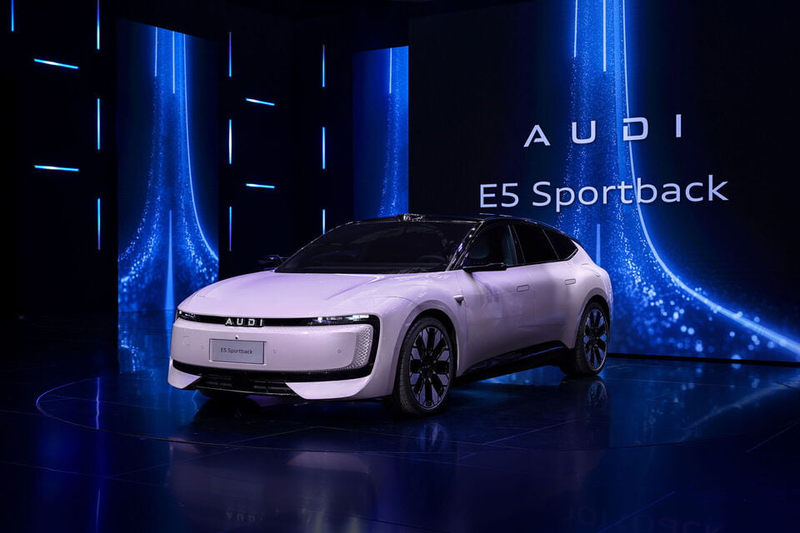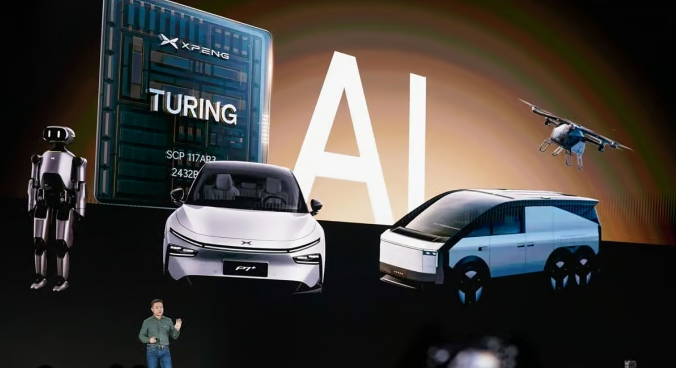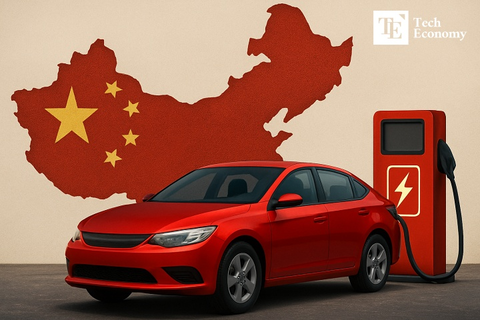German Automakers Embark on ‘China Tech Shopping Spree,’ Redesigning the Global EV DNA
Input
Changed
Audi and Volkswagen, Joint Development with Chinese Partners Renault and Ford, Pursuit of ‘Global Models’ through Chinese EV Platforms “Billions of Dollars and Years of Development Time Saved”

German automakers are accelerating new vehicle development by strengthening alliances with Chinese companies. Software provided by Chinese EV firms is emerging as a “China Inside” component running through the competitive landscape of global automakers’ new models. However, some caution that while such cooperation offers immediate advantages, in the long run it could undermine the technological independence and identity of global brands.
Audi, Joint Development with Chinese Partner
According to Reuters on the 14th (local time), traditional powerhouses such as Audi and Volkswagen are rushing to transplant Chinese EV platforms and software into their new model development. The shift began when Audi executives first encountered the “001” model launched by Zeekr, the premium brand of China’s Geely Group, in 2021. With its refined European aesthetics and remarkable driving range, the Zeekr 001 delivered a seismic shock to Germany’s luxury brands.
Audi’s response to this sense of crisis was collaboration with China. The company introduced three EV models, including the “E5 Sportback,” to the Chinese market this year, built on the ADP (Advanced Digitized Platform) co-developed with SAIC Motor. By sourcing key technologies such as components, batteries, infotainment, and driver-assistance systems from SAIC, Audi cut production lead time by more than 30% compared to existing German-made models. Audi focused on exterior and interior design and luxury engineering, while SAIC led development in software, powertrains (electric motors, battery management, etc.), connectivity, and hardware.
Not only Audi but also Toyota is accelerating development of China-exclusive models in partnership with GAC. Going a step further, Renault and Ford are considering adopting Chinese EV platforms directly into new global models or licensing them. Renault produced the European compact EV “Dacia Spring” on Dongfeng’s platform, while Ford integrated battery technology from China’s largest cell maker CATL into its North American production line.

Global Automakers’ Deepening Reliance on Chinese Technology
Volkswagen also partnered with Xpeng to co-develop “China Only” EV models with an eye toward global release. Last year, Volkswagen invested $700 million for a 4.99% stake in Xpeng, gaining access to smart-car software it struggled to develop internally, while Xpeng secured financial benefits and a springboard for global expansion.
The two companies are now deepening cooperation in artificial intelligence (AI). He Xiaopeng, Xpeng’s co-founder and CEO, told the Financial Times (FT) on the 12th that “we are working to integrate our Turing AI chip into some Volkswagen models scheduled for release in China next year.” The previous day, at the launch of Xpeng’s new G7 SUV, He claimed, “the actual computing power of our Turing AI chip is three times greater than Nvidia’s Orin-X, designed for autonomous driving.”
The FT reported: “Xpeng is one of the Chinese automakers challenging Western semiconductor companies such as Nvidia and Qualcomm. Its development of autonomous driving chips signals China’s progress in chip design capabilities after years of trying to reduce dependence on foreign semiconductors.” It added, “Xpeng’s decision to sell its chip technology to competitors like Volkswagen demonstrates that foreign automakers are becoming increasingly reliant on Chinese technology amid intensifying EV competition.”
German Automakers in Decline, Turning to ‘China Inside’
German automakers’ embrace of Chinese partners stems from their struggles amid a deep slump. Europe’s auto industry now faces a severe crisis. Inflationary pressures from pandemic-era stimulus measures and economic stagnation caused by the Russia-Ukraine war have driven up production costs. Meanwhile, financially strained consumers are reluctant to spend.
Looking at last year’s earnings of Germany’s big three: BMW (-37.7%), Mercedes (-30.8%), and Volkswagen Group (-15.1%) all saw operating profits plummet by as much as 30%. This stands in stark contrast to Hyundai Motor Group (+0.6%), Japan’s Honda (+16.4%), and America’s General Motors (+20.2%). While most major automakers saw declining sales, only China’s top two, BYD and Geely Group, recorded growth, with German automakers’ profitability particularly hard hit.
Against this backdrop, global automakers’ overtures to China are becoming a new revenue stream for Chinese EV firms. Amid fierce domestic competition and escalating trade tensions, they are securing stable cash flows. Conversely, international manufacturers are acquiring a shortcut to leap over development barriers and release new models rapidly. The strategy evokes memories of the 1990s “Intel Inside” campaign, which elevated PCs into premium products through cutting-edge component supply. Today, Chinese firms are supplying EV software in a similar fashion.
Yet whether this strategy will remain a sustainable model is unclear. The greatest concern is that global brands could become subordinate to Chinese technology and lose their distinct identity. Andy Palmer, former Aston Martin CEO, warned: “Companies may save on R&D costs, but if they become overly dependent on third-party technology, they will eventually degenerate into mere distributors and ultimately collapse.”






















Comment